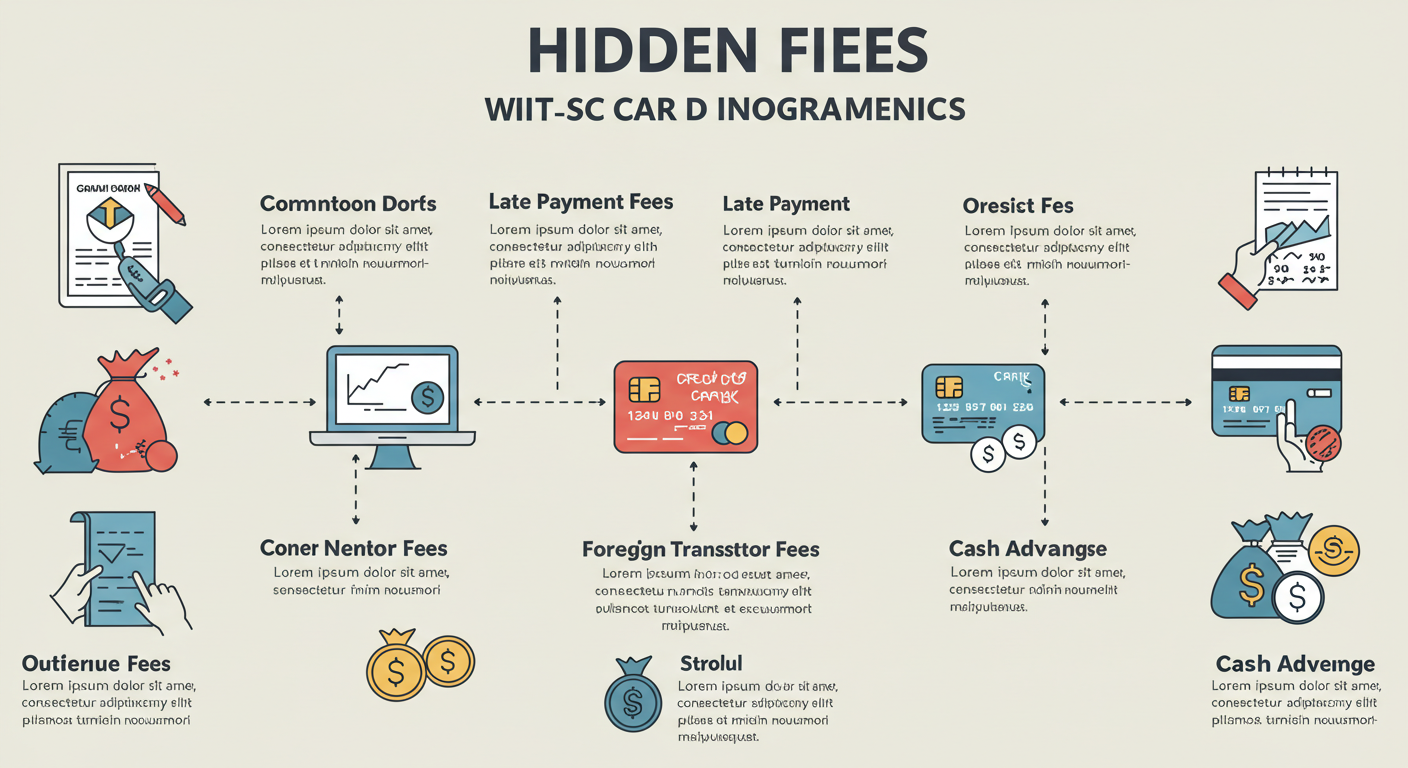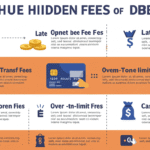Understanding the Hidden Fees of Credit Card Debt
When managing personal finances, it’s essential to have a clear grasp of credit card debt and its associated costs. While many people are aware of the basic interest rates that come with credit card debt, fewer understand the full scope of hidden fees that can accumulate, often leading them to more significant financial distress. This article breaks down the different types of hidden fees associated with credit card debt, aiming to illuminate the conditions under which these fees arise and how to avoid them.
1. Annual Fees
Some credit cards come with annual fees, a charge that is often overlooked when considering a credit card’s overall cost. These fees can range from modest amounts to hundreds of dollars, depending on the features and rewards associated with the card. High-end cards that offer extensive benefits might seem appealing, but their annual fees can offset the value of the rewards if not utilized effectively. Always read the fine print and evaluate whether the potential rewards justify the annual fee.
2. Late Payment Fees
One of the most common hidden fees in credit card debt is the late payment fee. If you miss the payment deadline—even by a single day—you may incur a late fee, typically ranging from $25 to $40. These fees are not just a one-time setback; they can also affect your credit score negatively, leading to increased interest rates in the future. To avoid these fees, set up automated payments or reminders through your bank.
3. Foreign Transaction Fees
For those who travel frequently or shop internationally, foreign transaction fees can become a significant and often unnoticed expense. Many credit cards impose a fee of 1% to 3% on purchases made outside your home country. This fee can add up over time, making it vital to ensure that your credit card has no foreign transaction fees if you frequently engage in international transactions.
4. Cash Advance Fees
Using your credit card for cash advances can lead to hefty fees, often accompanied by higher interest rates. Cash advances typically incur a fee ranging from 3% to 5% of the amount withdrawn, with a minimum charge applied. Additionally, the interest on cash advances starts accruing immediately—there’s no grace period, unlike regular purchases. Understanding the implications of cash advances can help you avoid this costly misstep.
5. Balance Transfer Fees
Many consumers look to consolidate their debts by transferring balances from one credit card to another, typically to capitalize on promotional low-interest rates. However, balance transfer fees are often involved, usually between 3% and 5% of the transferred amount. While a balance transfer can sometimes provide short-term relief, it’s crucial to factor in these fees when evaluating your total costs.
6. Returned Payment Fees
If you attempt to make a payment that the bank cannot process, such as writing a check that bounces, you will likely incur a returned payment fee. This fee can range from $25 to $35 and can significantly increase your outstanding balance. To mitigate this risk, ensure your accounts are funded before making payments, and consider budgeting carefully.
7. Over-the-Limit Fees
Some credit cards allow you to exceed your credit limit but typically for a fee. The over-the-limit fee can range from $25 to $35 per transaction. While new regulations have made it harder for credit card companies to charge these fees frequently, it’s essential to understand your card’s policy to prevent unexpected charges.
8. Rewards Redemption Fees
While rewards credit cards can be lucrative, some come with hidden costs when redeeming points. Charges based on redemption, including booking fees when using points for travel, can diminish the value of the rewards earned. Review the terms and conditions of your rewards program to ensure that the rewards redeemable are worth the points spent.
9. Inactive Account Fees
Some credit card issuers charge fees for accounts that remain inactive for an extended period. This fee often emerges after a year of inactivity, and while it may be nominal (around $10 to $25), it can still be a surprise if you had not anticipated it. To avoid this fee, consider using your card for small purchases periodically.
10. Credit Insurance Fees
Credit insurance can provide peace of mind by covering your payments if something unexpected happens, like losing your job. However, this insurance often comes at a high cost, which can be added to your monthly bill. If you’re considering credit insurance, weigh the costs against the benefits carefully.
11. Interest Rate Increases
One of the most significant hidden fees could be the result of a sudden increase in your interest rate. If you make late payments, exceed your credit limit, or your credit score drops, providers can raise your APR. This increase can add substantial long-term costs to your debt. Make sure to keep tabs on your credit utilization and payment history to maintain your rates.
12. Special Offers Gone Wrong
Sometimes, enticing offers such as introductory 0% APR can lead consumers astray. When the promotional period ends, the interest rates can skyrocket, sometimes exceeding 20%. Make sure to read the fine print of any introductory offers and understand how long the promotion lasts. You should also have a repayment strategy in place to tackle the outstanding balance before the rate increases.
13. Surcharges for Payments Made by Phone or Online
Certain credit card issuers charge fees for making payments over the phone or via their website, especially if paying via a customer service representative. While not always significant, these fees can still add up over time. Use self-service options to avoid potential surcharges.
14. Account Maintenance Fees
Some credit card providers impose monthly maintenance fees that can sneak up on users, especially with no or low account activity. These fees can be avoided by choosing a card with no maintenance fees or maintaining a minimum level of transactions.
15. Understanding Your Credit Card Statement
One crucial strategy to combat hidden fees is to familiarize yourself with how to read your credit card statement. Regularly reviewing your statements helps identify unwanted charges promptly, allowing for quicker dispute or resolution, thus protecting your financial health.
16. Solutions to Avoiding Hidden Fees
-
Use Credit Wisely: Limit the use of your credit card to transactions you can pay off in full each month to avoid interest and fees.
-
Set Reminders: Utilize mobile alerts or calendar reminders to ensure timely payments and reduce the risk of penalties.
-
Choose No-Af Fee Cards: When selecting a credit card, opt for those with minimal or no annual fees, foreign transaction fees, and balance transfer fees.
-
Review Terms Regularly: Credit card terms can change. Periodically reviewing your agreement can help you stay informed about potential fee changes.
- Build a Relationship with Your Lender: Maintaining good standing with your credit card provider can sometimes make them more amenable to waiving fees.
By actively managing credit card use and remaining informed about potential fees, users can mitigate their risk of falling into the trap of accumulating hidden costs associated with credit card debt. The key is to remain vigilant, informed, and proactive about your financial wellbeing.




